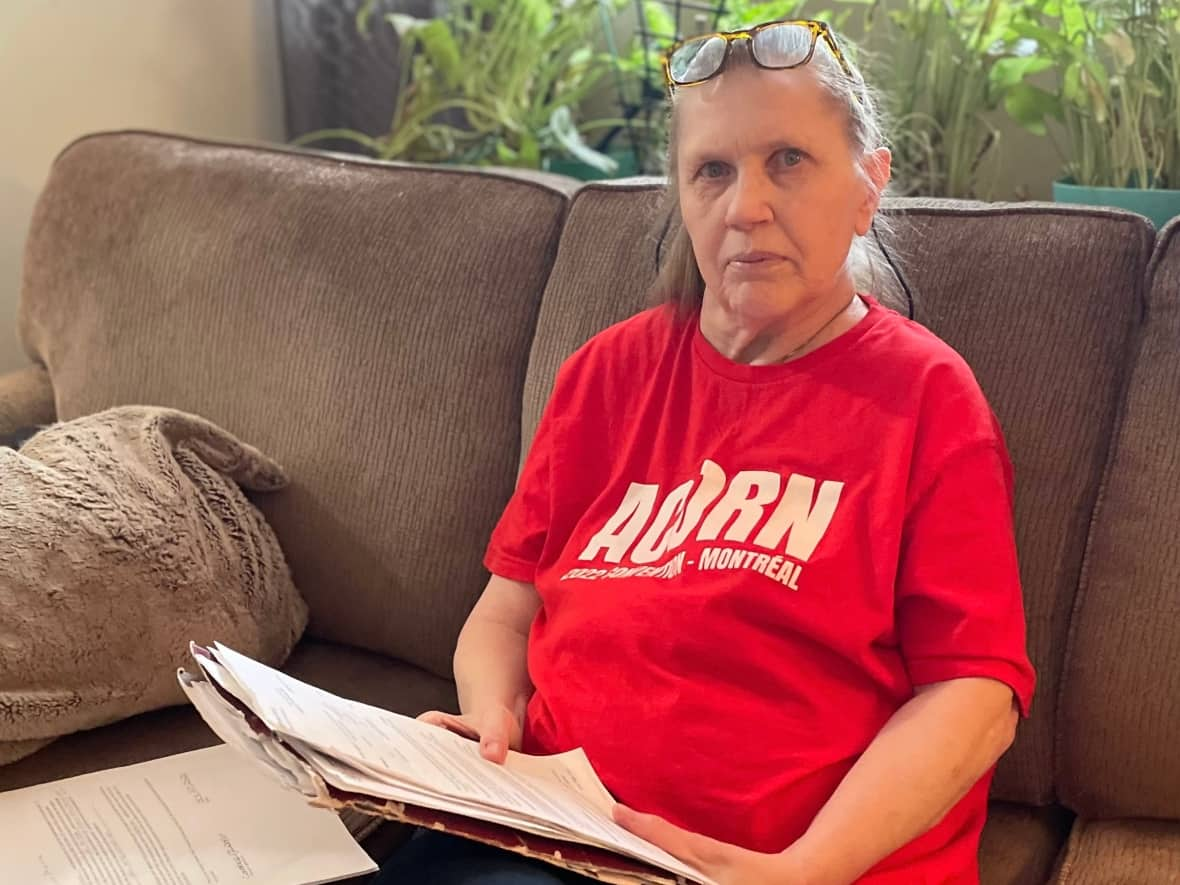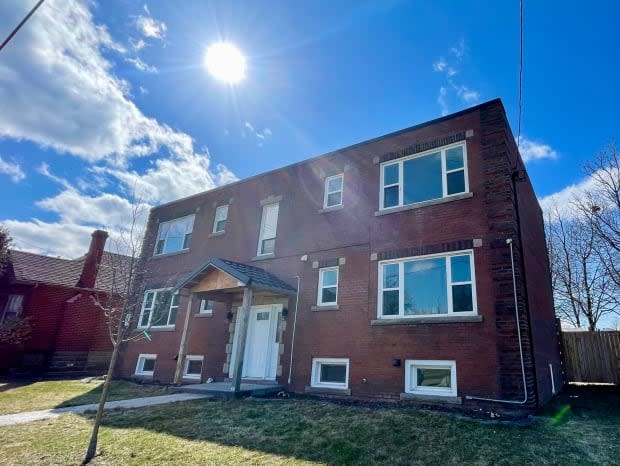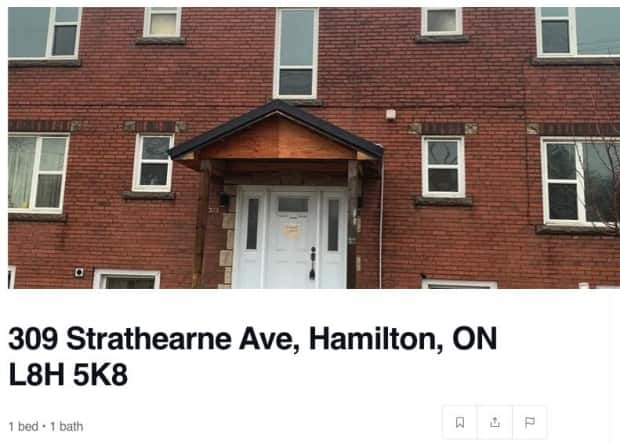These Hamilton tenants fight to return to their affordable units after renoviction

Tenants at a Hamilton apartment building are fighting for their affordable units after they say their landlord illegally denied them their right to move back in following renovations.
It's an example of how cities are "bleeding" affordable housing, which researcher Steve Pomeroy says is happening in Hamilton. Tenants are evicted or move out and their units are then rented at a significantly higher price, far faster than new affordable units are being built.
For every affordable unit Hamilton builds, it's losing 29 affordable units to market forces, said Pomeroy.
Herman van der Meiden is one of the tenant losing out. He was evicted at the end of July from 309 Strathearne Ave. after the building's owner Kevin Moniz successfully argued at the Landlord and Tenant Board (LTB) he needed all four tenants out to complete extensive work, according to the board's decision provided to CBC Hamilton.
Van der Meiden, 59, said he was paying just over $700 for his one-bedroom unit. He's currently paying for a new apartment, which he had hoped would be temporary, but says rent is "twice as much for half the size," and he's had to dip into his savings to make up the difference.
"This isn't my home here," van der Meiden said. "This is a hole in the freakin' wall."
The arrangement was supposed to be a short-term inconvenience, he said. He'd always planned to move back into his renovated unit for the same amount adjusted for inflation, as tenants have the right to do under Ontario law.
However, the LTB's lack of enforcement has resulted in landlords skirting the rules, refusing to let old tenants return in favour of accepting new tenants who will pay more for the same units, said Geordie Dent, executive director of the Federation of Metro Tenants' Associations.
"The reason we are losing these affordable units is that landlords are often committing eviction fraud and jacking the rent," Dent said.
Landlord told tenant it's 'impossible' for him to return
In emails seen by CBC Hamilton, Moniz offered van der Meiden his unit back in late December and van der Meiden accepted.
A few days later, however, Moniz appeared to change his mind, stating in another email to van der Meiden that he couldn't afford to rent the unit below market value because of renovation and building permit costs, inflation and interest rate hikes, and a car accident in the summer that left him unable to work. His emails didn't include a new rental cost.
"I'm sorry to inform you that the rental unit will not be available," Moniz said in the email dated Jan. 1. "Really trying to make it work but it's impossible … I will deal with LTB if need be but at this moment there is nothing I can do."
Moniz did not respond to CBC Hamilton's requests for comment.
"There's no conscience there, none," van der Meiden said. "It's really sad. I'm just hoping and praying."
He and two other tenants have filed what's called a "T5" at the LTB to argue the landlord evicted them in bad faith, said their paralegal Kimberly Farrell. A hearing has been scheduled for one of the tenants on April 5.
One of the building's units appears to be listed on a rental site for $1,650 a month.

Farrell said if the unit is rented out, the LTB will not evict the new tenant, but it can order the landlord to pay the previous tenant up to $35,000. However, if the landlord doesn't comply, it's up to the tenant to pursue enforcement through small claims court.
At the LTB, she's requested an interim order that the units are not to be rented out, but that won't go through until the cases are heard.
"We need more teeth at the Landlord and Tenant Board to enforce legislation and prevent renovations," Farrell said.
More teeth would mean the LTB imposes stiffer fines or orders the landlord to allow tenants to move into vacant units while their units are being renovated, she said.
'How do we stop the bleeding?'
A fourth tenant, Darlene Wesley, 65, is hoping the group wins their units back. She was the last to be evicted from the building in January and said she doesn't know if she'll be in the same situation when renovations in her unit are complete several months from now.
She said she's on a fixed income through the Old Age Security pension and was paying $720 a month for her home of 18 years.

In a city where the average rent for a one-bedroom apartment has reached new heights of nearly $1,800 a month, Wesley said she can't afford to live anywhere else.
Right now she's temporarily staying with her daughter, who also lived at 309 Strathearne Ave. and is among those who filed a T5 at the LTB.
"If I go back, I'm there until I die," said Wesley.
For the last decade, Hamilton's lost 15,000 units considered affordable at less than $750 a month, said Pomeroy, a consultant, senior research fellow at Carleton University and member of McMaster University's Canadian Housing Evidence Collaborative.
He presented his findings about the Hamilton rental market to council earlier in March as the city considers how to tackle its affordable housing crisis.
Pomeroy said there's a shortage of new buildings that are dedicated to rentals and an increase in demand as Hamilton's population grows.
"Hamilton has an absolute shortfall of affordable housing," Pomeroy said. "So how do we stop the bleeding?"
He advised council to shift focus from trying to build its own affordable housing to help tenants avoid eviction in the first place, expand rent subsidies and intensify existing social housing, among other approaches.


